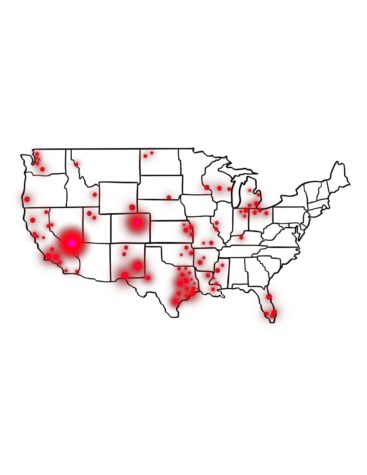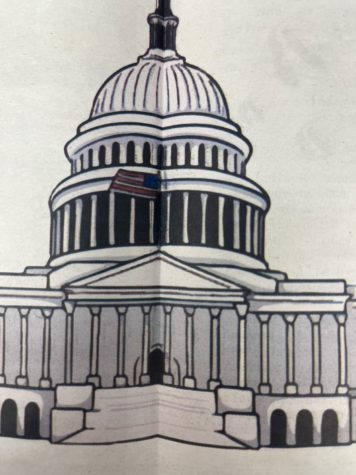Juneteenth: a day of remembrance
Many Liberty students may see June 19th as just another day off or an early end to the school year. Little do they know the significance this date holds for people across the country: a 2nd American Independence Day.
June 2, 2023
“I think that what makes our country so special is our ability to embrace and highlight our diversity, and I think that’s something that we really need to embrace,” world history teacher Peter Kurtz said.
One example of this ability is Juneteenth, a federal holiday that is also referred to as Freedom Day or Emancipation Day. Juneteenth was created as a federal holiday by President Joe Biden on June 17th, 2021, and is celebrated on June 19th every year.
“Juneteenth is a huge part of our history, especially since slavery was the start of this country and what ran this country for a time,” junior Minot Elias said.
Juneteenth’s historical importance is a major reason for its continued significance.
“The day is a representation of freedom for all that also pays homage to the struggles that occurred beforehand in order to reach the point of freedom,” junior Te’Omaurey Armstrong said.
This makes it incredibly important to understand in this period of time of continued discrimination towards those viewed as different.
“Juneteenth is such an important holiday for education, raising awareness, and better understanding African American history,” Yuen said. “Too often, American History has such a white-dominant perspective, and it’s important to take into account true historical events, as well as the perspective of those who are not part of the dominant culture.”
This focus on white perspectives over other cultures often leads to a lack of knowledge of minority histories.
“I’ve been in the U.S. for almost 17 years, and it is evident that not all true parts of American history are taught,” Yuen said. “I had always correlated the freedom of enslaved African Americans with the Emancipation Proclamation, and I only learned the truth about the freedom of enslaved African Americans a few years ago.”
Recognizing that the histories of these minority groups may be told in a biased or incorrect way is an incredibly essential step in order to become informed members of society. Especially when populations of these groups are small, it is critical to understand prejudices written into some of our histories to respectfully celebrate other cultures.
“At our school, African American & Black students make up such a small part of the student and staff population, which makes it all the more important to create a culture of acknowledgment, celebration, and honor around the holiday,” Yuen said.
However, the biggest thing standing in the way of having more student awareness of Juneteenth is a lack of knowledge. So many people have false perceptions of what Juneteenth is or have never heard of it.
“Juneteenth is the actual day when the emancipation of all enslaved people happened in America, on June 19, 1865,” Liberty Equity Team Lead Kaela Yuen said. “Two years earlier, the Emancipation Proclamation was communicated via Union soldiers to Confederate states. However, not everyone got the news, so not all enslaved African Americans were freed.”
June 19 symbolizes a lot for all people who recognize it as a holiday because of its significance in the history of the United States.
“On June 19, 1865, Union soldiers made it to Galveston, Texas where slaves heard that they were free,” history teacher Peter Kurtz said. “Abraham Lincoln freed the slaves in the South during the Civil War with the Emancipation Proclamation which emancipated slaves, in other words, freed the slaves of the South.”
According to Yuen, Juneteenth is considered to be a ‘Second Independence Day’ in America, that specifically marks the freedom and independence for African Americans.
In addition to the Emancipation Proclamation, the 13th Amendment states “Neither slavery nor involuntary servitude, except as a punishment for crime whereof the party shall have been duly convicted, shall exist within the United States,” was a key step in the abolishment of slavery, but not the final one.
“The most important thing is the time aspect: how long it took after the war to free enslaved people. Lincoln didn’t ‘free the slaves’ with the Emancipation Proclamation,” history teacher Ross Mathney said.
The period after the abolishment of slavery in the United States is known as Reconstruction because it was a time when American society began to integrate former slaves into society. This period lasted from 1865-1877, and its effects continue to influence society today.
“Juneteenth also reminds us of how progress isn’t linear; after the failure of Reconstruction, African Americans needed the Civil Rights movement to see notable further progress toward equality, something that is not complete today,” Matheny said.
And one way to begin celebrating this long-ignored piece of history is to join community celebrations of the day.
“There is a City of Renton’s Juneteenth Celebration on June 25 at Liberty Park from 12-5 pm. The theme is called ‘Reclaiming our Greatness’ and there will be food trucks, a career fair, and a 3 v 3 Basketball tournament.” Yuen said. “Coming to an event like this is a great way to connect, learn and support!”
Taking part in events that celebrate and uplift those historically put down is a great way to show one’s support for other cultural groups. This exhibits an understanding of the past these groups fought through in order to get to a place in which they can be celebrating.
“Everyone should be aware of the history of different cultures and what other groups of people have been through and how they rose from it, not only in this country but in the world,” Armstrong said.









